
Cap Skirring: Senegal's Coastal Paradise
Nestled along the southern coast of Senegal, Cap Skirring is a hidden gem that offers a mix of pristine beaches, lush greenery, and a vibrant local culture. This coastal town is perfect for those looking to unwind and soak up the sun while experiencing the warmth and hospitality of the Senegalese people. Cap Skirring is renowned for its stunning beaches, where golden sands meet the turquoise waters of the Atlantic Ocean. The beaches are often less crowded than other tourist hotspots, making it an ideal destination for relaxation and leisurely beach activities. Visitors can enjoy swimming, sunbathing, and even try their hand at various water sports like windsurfing and snorkeling. Beyond its natural beauty, Cap Skirring is also a cultural hub. The town is home to vibrant markets, where you can find handmade crafts, colorful textiles, and local delicacies. Don't miss the chance to experience traditional Senegalese music and dance, which are often performed in local venues and during festivals. For a taste of local cuisine, head to one of the many seaside restaurants that serve fresh seafood dishes and other Senegalese specialties. For nature lovers, Cap Skirring offers numerous excursions into the surrounding countryside. You can take a guided tour through the mangroves, visit nearby fishing villages, or explore the lush forests that are home to a variety of wildlife. The region's diverse flora and fauna make it a paradise for bird watchers and eco-tourists alike.
Local tips in Cap Skirring
- Visit during the dry season from November to April for the best weather.
- Take local currency (West African CFA francs) as ATMs may be scarce.
- Hire a local guide for excursions to get the most out of your visit.
- Sample fresh seafood at beachside restaurants for an authentic taste of the region.
- Attend a local festival to experience traditional music and dance.
Cap Skirring: Senegal's Coastal Paradise
Nestled along the southern coast of Senegal, Cap Skirring is a hidden gem that offers a mix of pristine beaches, lush greenery, and a vibrant local culture. This coastal town is perfect for those looking to unwind and soak up the sun while experiencing the warmth and hospitality of the Senegalese people. Cap Skirring is renowned for its stunning beaches, where golden sands meet the turquoise waters of the Atlantic Ocean. The beaches are often less crowded than other tourist hotspots, making it an ideal destination for relaxation and leisurely beach activities. Visitors can enjoy swimming, sunbathing, and even try their hand at various water sports like windsurfing and snorkeling. Beyond its natural beauty, Cap Skirring is also a cultural hub. The town is home to vibrant markets, where you can find handmade crafts, colorful textiles, and local delicacies. Don't miss the chance to experience traditional Senegalese music and dance, which are often performed in local venues and during festivals. For a taste of local cuisine, head to one of the many seaside restaurants that serve fresh seafood dishes and other Senegalese specialties. For nature lovers, Cap Skirring offers numerous excursions into the surrounding countryside. You can take a guided tour through the mangroves, visit nearby fishing villages, or explore the lush forests that are home to a variety of wildlife. The region's diverse flora and fauna make it a paradise for bird watchers and eco-tourists alike.
When is the best time to go to Cap Skirring?
Iconic landmarks you can’t miss
Club Med Cap Skirring - Senegal
Discover the tranquil beauty of Club Med Cap Skirring in Senegal, where luxury meets adventure in a stunning coastal paradise.
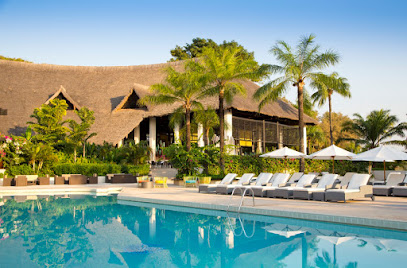
La MARSU
Discover the luxury and beauty of La MARSU in Cap Skirring, where stunning ocean views and Senegalese hospitality await every traveler.

Soumare Tours
Experience the stunning beaches and rich culture of Cap Skirring, Senegal, with Soumare Tours for an unforgettable getaway.
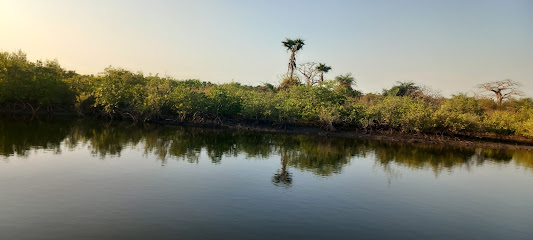
CASAMANCE ENCHANTEE
Experience the vibrant culture and breathtaking landscapes of Casamance Enchantée in Cap Skirring, Senegal, a must-visit tourist attraction.
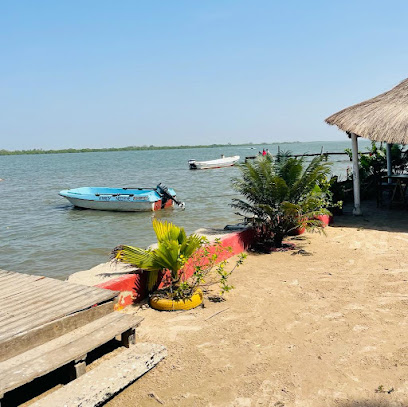
Vacas Point
Experience the breathtaking beauty of Vacas Point, a tranquil beach in Cap Skirring, perfect for relaxation and unforgettable sunsets.
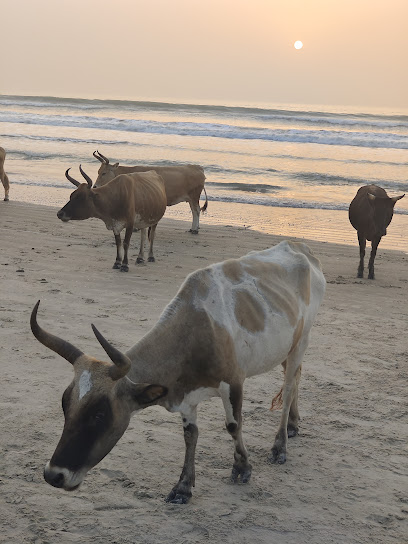
Soleil Casamance
Experience the enchanting beauty and vibrant culture of Soleil Casamance in Cap Skirring, a must-visit tourist attraction for every traveler.
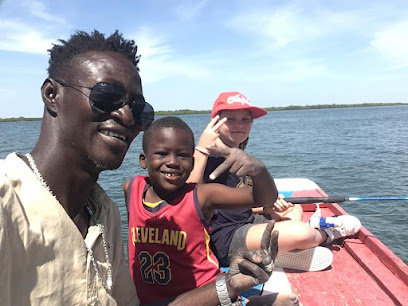
Unmissable attractions to see
Musée Kadioute
Explore the vibrant culture and history of Senegal at Musée Kadioute in Cap Skirring, a highlight for every traveler.
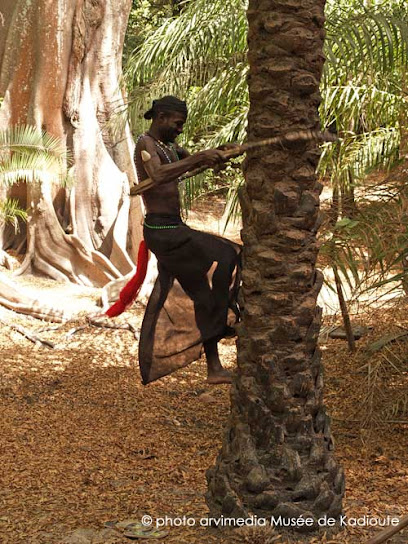
Île aux oiseaux
Discover the serene beauty of Île aux Oiseaux, a nature lover's paradise offering breathtaking landscapes, rich biodiversity, and tranquil experiences.
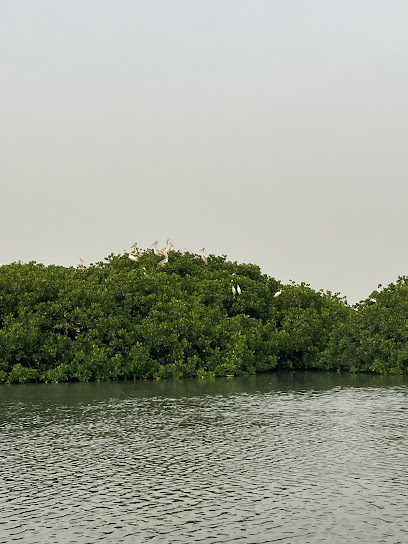
Plage
Experience the tranquil beauty of Plage in Cap Skirring, where golden sands and vibrant culture meet for an unforgettable getaway.
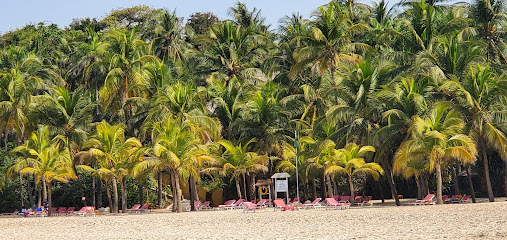
Soleil Casamance
Discover the enchanting Soleil Casamance in Cap Skirring, Senegal – a perfect blend of natural beauty and rich cultural experiences.
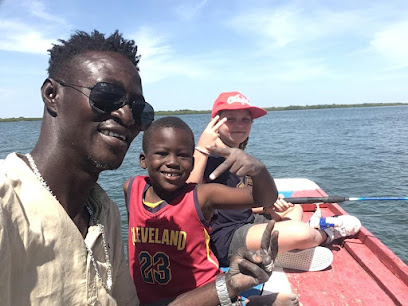
Ajjanaji
Discover the tranquil beauty of Ajjanaji Garden in Cap Skirring, a picturesque retreat filled with vibrant flora and serene landscapes.

Plage Cap Skring Téféss
Experience the tranquility of Plage Cap Skring Téfés - a serene beach destination perfect for relaxation and cultural exploration along the Senegalese coast.

Sculpture
Discover the enchanting world of art at Boukitimgo Sculpture, where creativity and cultural heritage come alive in stunning sculptures.

Cap Skerring Vélos Excursions
Discover the enchanting beauty of Cap Skirring through Velos Excursions, where adventure meets the vibrant culture of Senegal.
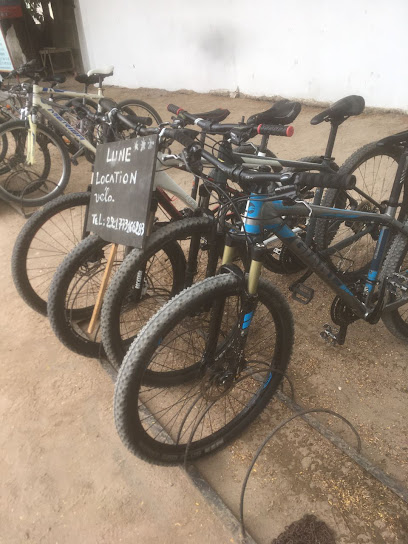
Location de velós excursions
Discover the enchanting landscapes of Kabrousse with 'Location de vélos excursions'—a unique way to explore Senegal's natural beauty on two wheels.
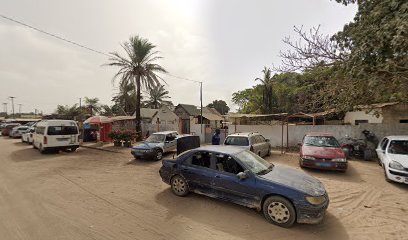
Essential places to dine
La Paillote
Experience coastal bliss at La Paillote in Cap Skirring – where comfort meets breathtaking beachfront views.

La MARSU
Experience coastal serenity at La MARSU, a charming hotel in Cap Skirring offering breathtaking ocean views and vibrant local culture.

Le Régal
Experience authentic Senegalese cuisine at Le Régal in Cap Skirring – where every dish tells a story.
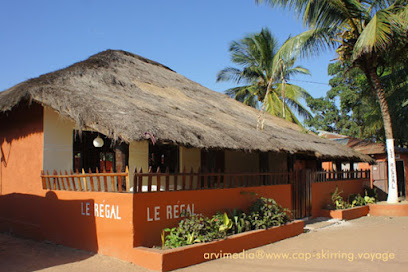
Cap Sénégal
Explore Cap Sénégal: A premier recreation center offering leisure, dining, and athletic adventures along Senegal's beautiful coastline.
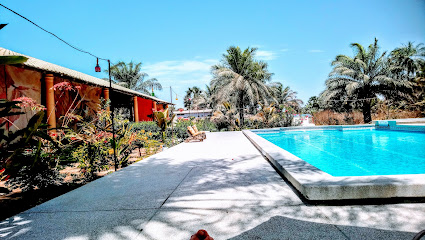
Hôtel - Restaurant du Bar de la Mer
Experience coastal luxury at Hôtel - Restaurant du Bar de la Mer in Kabrousse, where stunning views meet exceptional dining.
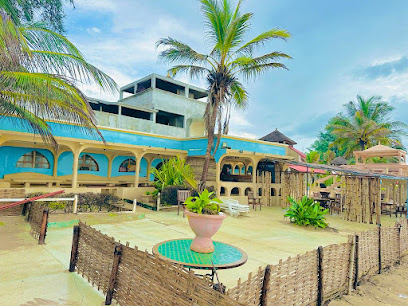
Fromager
Discover Fromager: A charming indoor lodging in Cap Skirring offering authentic Senegalese cuisine and warm hospitality.

Restaurant La Diaspora
Discover the essence of Senegalese flavors at Restaurant La Diaspora in Cap Skirring - where culinary traditions meet vibrant live music.
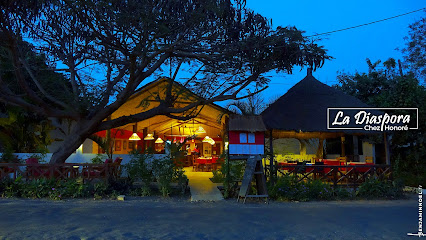
Chez Loulou Pizzeria
Experience the authentic taste of Italy at Chez Loulou Pizzeria in Cap Skirring - where every slice tells a story!
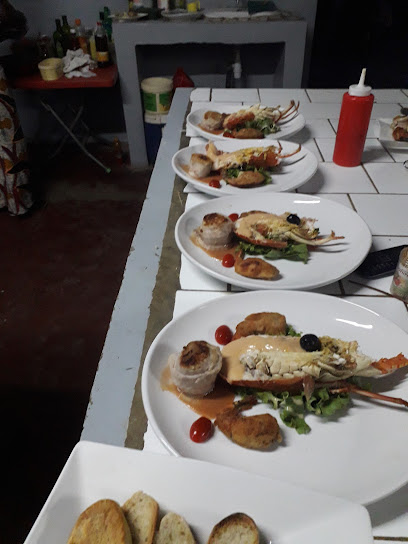
Le petit Gourmet
Experience authentic Senegalese flavors at Le Petit Gourmet in Cap Skirring - where every dish tells a story.
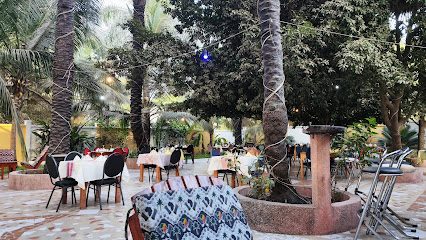
La cabane sauvage
Experience authentic Senegalese cuisine at La Cabane Sauvage in Boucott-Diembéring, where fresh ingredients meet local flavors.
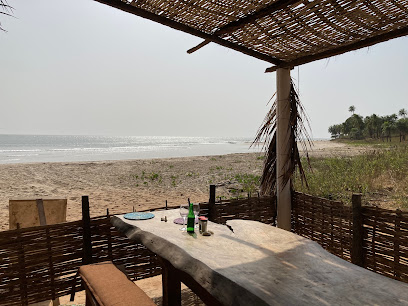
Restaurant Boudody
Experience the taste of fresh seafood with stunning ocean views at Restaurant Boudody in Cap Skirring.
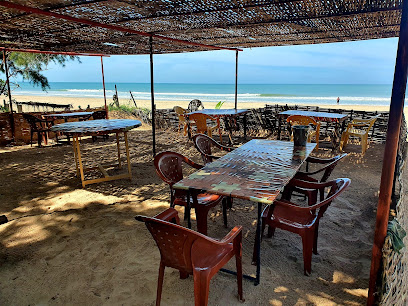
cap bay
Experience tranquility and stunning ocean views at Cap Bay in Kabrousse - your perfect getaway destination.
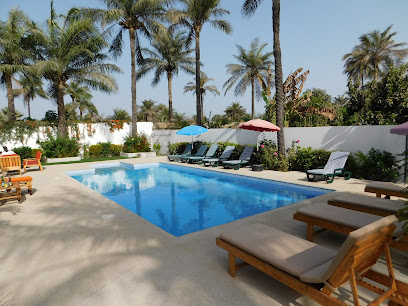
Le Biarritz
Experience authentic Senegalese cuisine at Le Biarritz in Cap Skirring – where every dish tells a story.
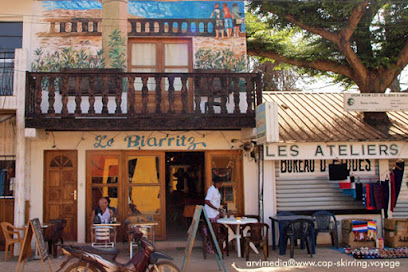
Mansa Lodge Maison et Table d'hôtes
Discover serenity at Mansa Lodge Maison et Table d'hôtes in Cap Skirring—where comfort meets coastal charm.
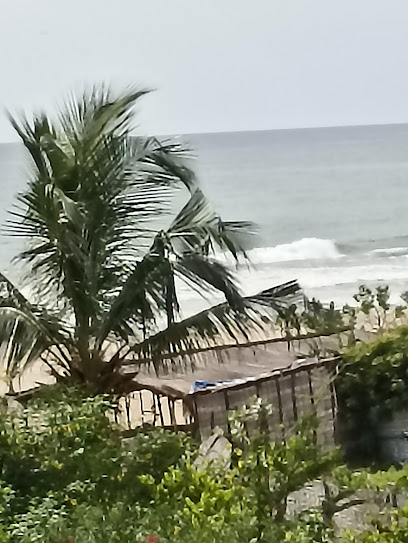
Le Coin
Experience authentic Senegalese cuisine at Le Coin in Cap Skirring - where flavors meet tradition in a warm and welcoming atmosphere.
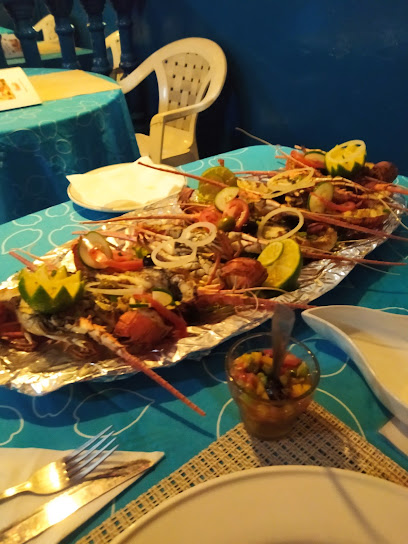
Markets, malls and hidden boutiques
Boulangerie AMiNA
Discover the authentic taste of Senegal at Boulangerie AMiNA, where freshly baked delights meet local culinary traditions.
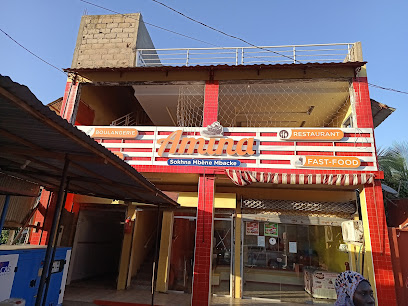
Sara La Superette Du Cap
Explore the flavors of Senegal at Sara La Superette Du Cap, offering local produce and essentials for your coastal adventures.

Pharmacie Cap skirring
Discover essential health services at Pharmacie Cap Skirring, your go-to pharmacy for medications and personal care in Cap Skirring, Senegal.
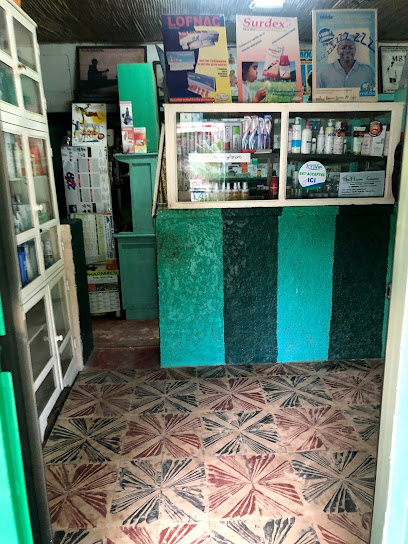
Le lys blanc
Explore Le Lys Blanc in Cap Skirring for unique local treasures and a taste of Senegal's vibrant culture.
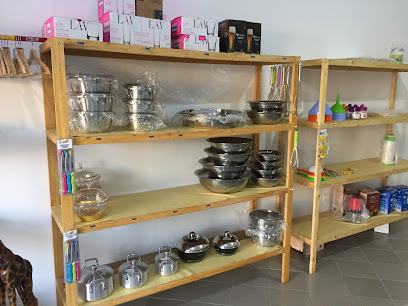
Manou boutique
Discover the vibrant world of textiles at Manou Boutique in Cap Skirring, where local craftsmanship meets exotic designs for unique shopping experiences.
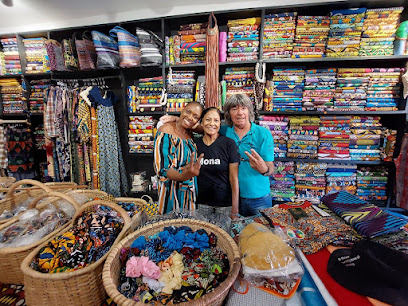
Boulangerie de Cap Skirring
Discover the flavors of Senegal at Boulangerie de Cap Skirring, where fresh pastries and local breads create a delightful culinary experience.
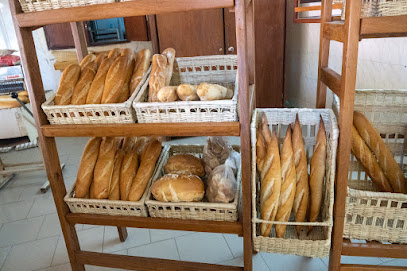
QUAIE DE PECHE Cap_skirring
Experience the sweet flavors of Quai de Pêche in Cap Skirring, where delicious ice cream meets a vibrant coastal atmosphere.
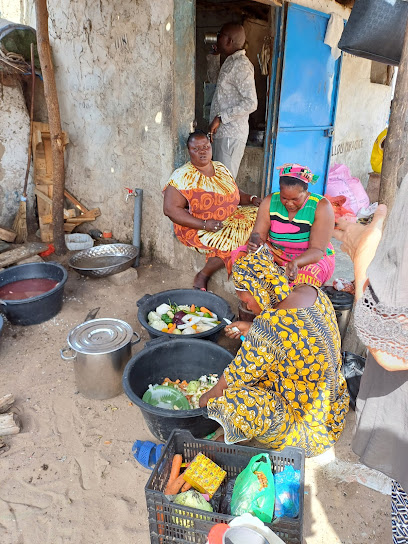
Dia Man & Giselle Tapissier
Discover the charm of local craftsmanship at Dia Man & Giselle Tapissier, a unique furniture store in Senegal offering exquisite handmade pieces.
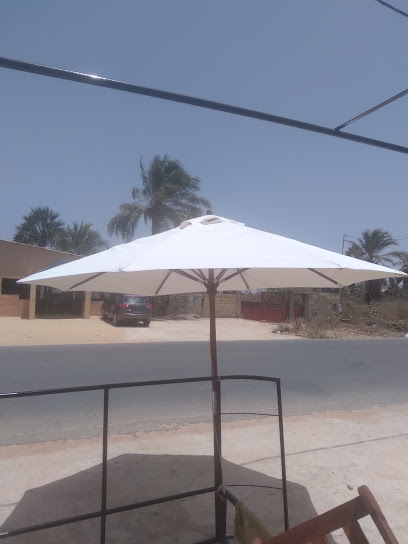
Duvoux Beauté
Discover unique fashion at Duvoux Beauté in Cap Skirring, where local style meets exceptional quality and service.

Boutique Chez Zorro l'Antiquaire
Explore the charm of Boutique Chez Zorro l'Antiquaire in Oussouye, where every antique tells a story and captures the essence of Senegal's rich culture.
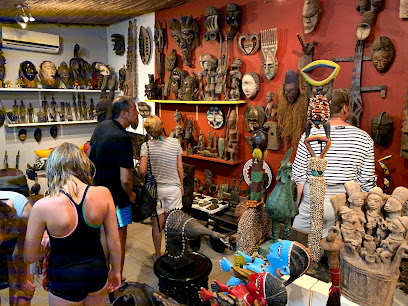
Literie au Cap
Explore Literie au Cap for premium bedding and sleep essentials in Cap Skirring, ensuring a restful stay during your Senegal adventures.

Chez Binta
Explore the vibrant world of textiles at Chez Binta, the must-visit fabric store in Boucott-Diembéring for unique local craftsmanship.
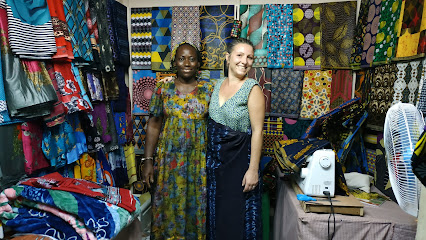
Moulaye - Tailleur, vêtements sur mesure, belle qualité, sérieux, honnête.
Experience bespoke craftsmanship at Moulaye in Cap Skirring, where quality meets personalized fashion for every discerning traveler.
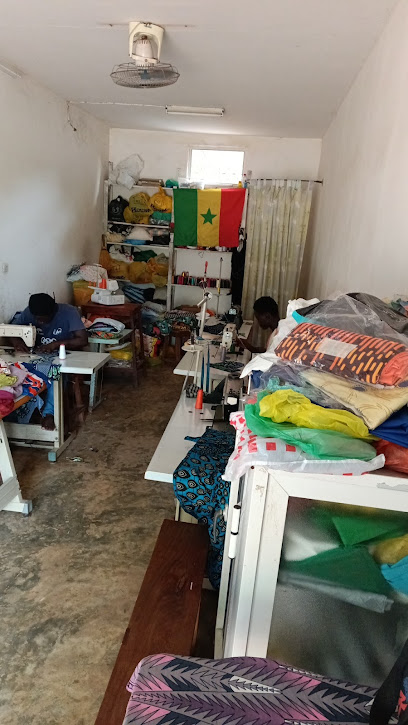
Momo - Roi du cuir
Explore Momo - Roi du cuir in Cap Skirring for unique, high-quality shoes that capture the essence of local craftsmanship and fashion.
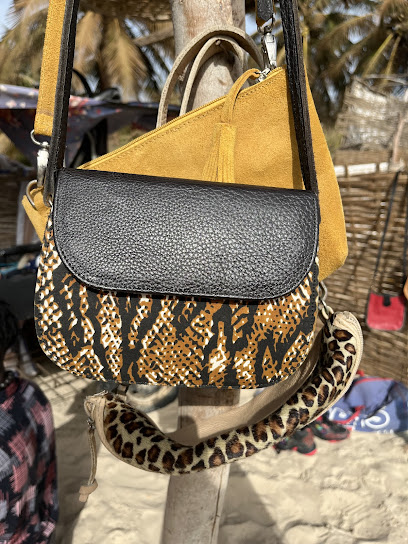
African Art Senegal
Explore the rich cultural heritage of Senegal through vibrant crafts and authentic African goods at African Art Senegal in Cap Skirring.
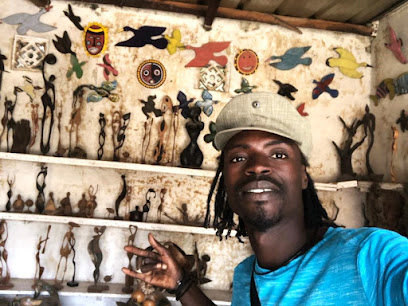
Essential bars & hidden hideouts
La case Bambou
Experience the vibrant nightlife at La Case Bambou, Senegal’s premier bar offering unique cocktails and local culture amidst lively music and ambiance.
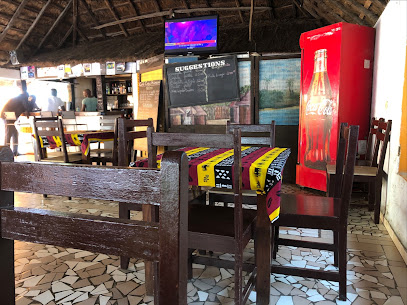
Le palme bar
Discover the vibrant atmosphere and traditional flavors at Le Palme Bar in Cap Skirring, a culinary gem for every traveler.
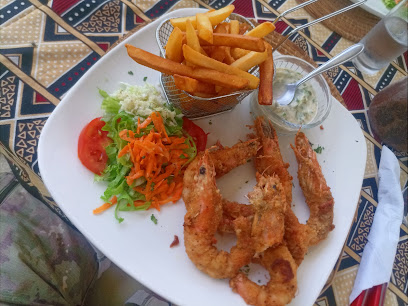
CHEZ MARIE
Discover the lively atmosphere and delicious drinks at Chez Marie, a vibrant bar in Kabrousse, perfect for unwinding after a day of exploration.
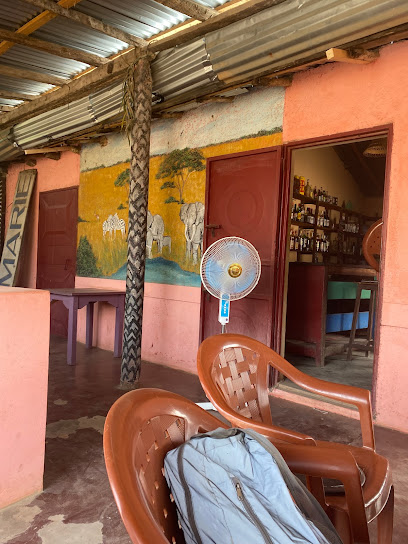
CIA Night Club
Discover the vibrant nightlife of Cap Skirring at CIA Night Club, where non-stop music and dancing create unforgettable memories.
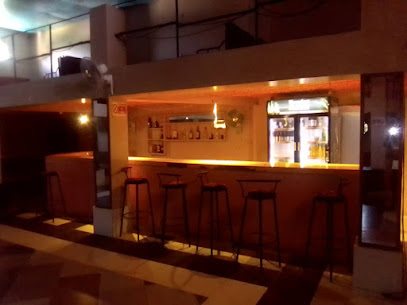
SALOMON'S Beach Bar-Restaurant
Discover the best of Cap Skirring at Salomon's Beach Bar-Restaurant, where fresh seafood meets tropical vibes and stunning ocean views.
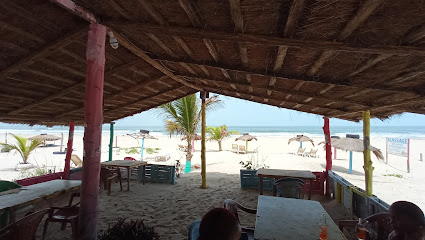
Bégué Begué Bar Restau
Discover the vibrant atmosphere of Bégué Begué Bar in Cap Skirring, where local flavors meet tropical relaxation for an unforgettable experience.
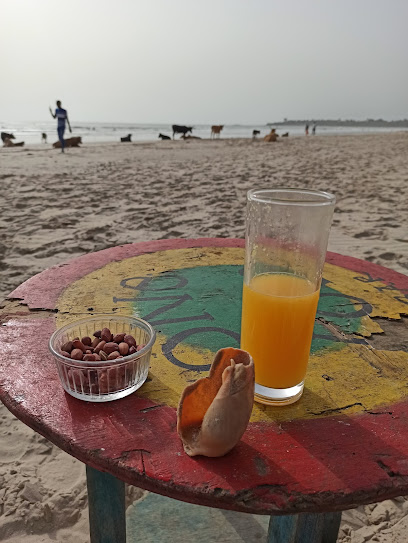
La Zebra Chez Selda
Experience the essence of Cap Skirring at La Zebra Chez Selda, a vibrant bar offering tropical drinks, live music, and stunning ocean views.
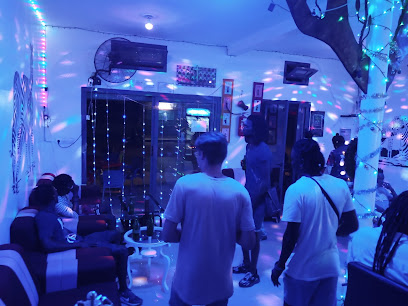
La case ronde chez FATOU SARR
Discover the heart of Cap Skirring's music scene at La case ronde chez FATOU SARR, a vibrant live music bar offering a taste of Senegalese culture.
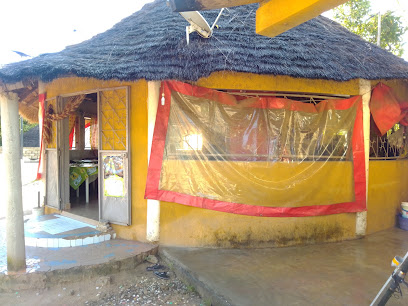
Bar restaurant chez Loulou
Discover the taste of Senegal at Bar Restaurant Chez Loulou in Cap Skirring, where local cuisine meets a charming coastal ambiance.

Yellow Vespa Bar
Discover the lively ambiance and unforgettable live music at Yellow Vespa Bar in Cap Skirring, the heart of Senegal's nightlife.
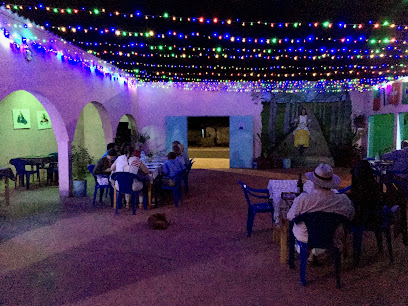
Restaurant chez platini
Experience the flavors of Senegal at Restaurant chez Platini in Cap Skirring, where culinary excellence meets warm hospitality.
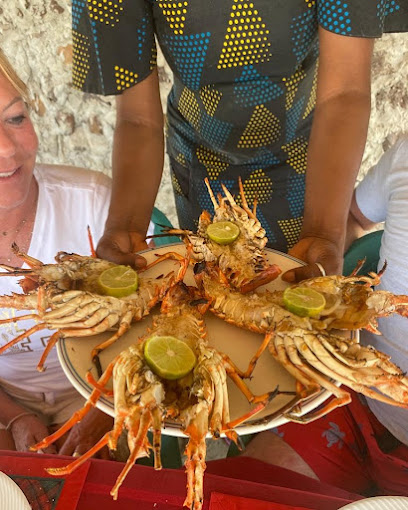
Bar Restaurant DIAMORAL Chez GEORGETTE
Experience the vibrant flavors of Senegal at Bar Restaurant DIAMORAL Chez GEORGETTE in Cap Skirring, where culinary tradition meets coastal charm.
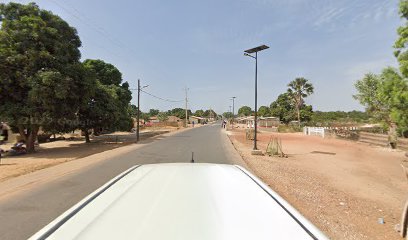
Kambeng eggaeR
Experience the vibrant atmosphere and refreshing drinks at Kambeng eggaeR, a must-visit bar in the heart of Cap Skirring.
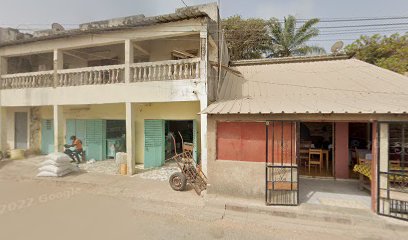
Bar Restaurant le CASA DI MANSA
Discover the vibrant flavors and warm hospitality of Senegal at Bar Restaurant le CASA DI MANSA in Cap Skirring, your perfect coastal retreat.
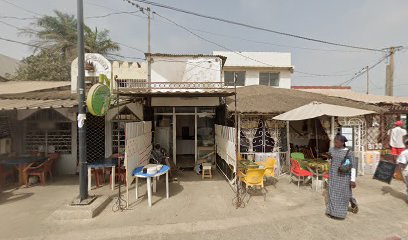
Local Phrases about Cap Skirring
-
- HelloSalam aleikum
[sah-lahm ah-lay-koom] - GoodbyeBa bai
[bah bah-ee] - YesWaaw
[wah-ow] - NoDéedét
[day-dayt] - Please/You're welcomeNa nga def
[nah ngah dehf] - Thank youJërejëf
[jay-ray-jayf] - Excuse me/SorryDégg-naa
[dayg-nah] - How are you?Nanga def?
[nah-ngah dehf] - Fine. And you?Jamm. Nopp na?
[jahm. nohp nah] - Do you speak English?Bëgg nga def Angalees?
[behg ngah dehf ahn-gah-lees] - I don't understandDégg na la
[dayg nah lah]
- HelloSalam aleikum
-
- I'd like to see the menu, pleaseMangi nopp menu, dëgg na
[mahn-gee nohp meh-noo, dayg nah] - I don't eat meatDégg na la nopp lañu
[dayg nah lah nop lah-nyoo] - Cheers!Bou bess!
[boo bess] - I would like to pay, pleaseMangi nopp bi, dëgg na
[mahn-gee nohp bee, dayg nah]
- I'd like to see the menu, pleaseMangi nopp menu, dëgg na
-
- Help!Nopp!
[nohp] - Go away!Jebal!
[jay-bahl] - Call the Police!Nopp polis!
[nohp poh-lees] - Call a doctor!Nopp dokteer!
[nohp dohk-tehr] - I'm lostDégg na laa
[dayg nah lah] - I'm illDégg na laa
[dayg nah lah]
- Help!Nopp!
-
- I'd like to buy...Mangi nopp...
[mahn-gee nohp] - I'm just lookingMangi nopp laaj
[mahn-gee nohp lahj] - How much is it?Làmbaay la benn?
[lahm-bah-ay lah benn] - That's too expensiveYowu déedet
[yoh-woo day-dayt] - Can you lower the price?Nopp sa fall
[nohp sah fahl]
- I'd like to buy...Mangi nopp...
-
- What time is it?Wàññu waay?
[wah-nyoo wah-aye] - It's one o'clockBu baax
[boo bahkh] - Half past (10)Kaw kaw
[kahw kahw] - MorningKërësi
[kehr-eh-see] - AfternoonKërësi
[kehr-eh-see] - EveningKërësi
[kehr-eh-see] - YesterdayNgoonu
[ngoh-noo] - TodayNopp
[nohp] - TomorrowGnéejoor
[nyay-johr] - 1Benn
[benn] - 2Jëf
[jayf] - 3Juroom
[joo-room] - 4Nëgg
[negg] - 5Juróob
[joo-rohb] - 6Jëkkër
[jayk-kehr] - 7Jëkk
[jayk] - 8Tooñ
[tohn] - 9Nëlë
[neh-leh] - 10Fukk
[fook]
- What time is it?Wàññu waay?
-
- Where's a/the...?Benn...?
[benn] - What's the address?Wàññu ko ci?
[wah-nyoo koh chee] - Can you show me (on the map)?Nopp sa tànn lépp?
[nohp sah tahn layp] - When's the next (bus)?Kii laa laa?
[kee lah lah] - A ticket (to ....)Billet (bu ....)
[bee-leht (boo)]
- Where's a/the...?Benn...?
History of Cap Skirring
-
Cap Skirring, located in the Casamance region of Senegal, has been inhabited for centuries by the Diola (Jola) people. The Diola are known for their rich cultural practices, traditional religion, and communal living. They have a deep connection to the land, practicing agriculture and fishing as their primary means of sustenance.
-
The arrival of European colonizers in the 15th century marked a significant shift in the history of Cap Skirring. Portuguese explorers were the first Europeans to reach the region, followed by the French and British. The French eventually established control over Casamance in the late 19th century. The colonial period introduced new administrative structures and economic changes, affecting the traditional ways of life of the local populations.
-
Senegal gained its independence from France on April 4, 1960. The post-colonial period saw efforts to integrate the Casamance region into the broader national framework. However, the region has experienced periods of tension and conflict, particularly due to the Casamance Conflict, a low-level insurgency that began in 1982. Despite these challenges, Cap Skirring has remained a peaceful enclave within the region.
-
Cap Skirring began to gain international attention as a tourist destination in the 1970s. Its pristine beaches, vibrant culture, and welcoming local communities attracted visitors from around the world. The development of hotels, resorts, and other tourist infrastructures transformed the local economy, providing new opportunities and challenges for the residents.
-
The cultural heritage of Cap Skirring is celebrated through various festivals and events. The most notable is the Boukout ceremony, a traditional Diola initiation rite that involves elaborate dances, music, and rituals. These cultural practices are not only a testament to the resilience of the local traditions but also serve as significant attractions for tourists seeking an authentic cultural experience.
-
In recent years, there has been a growing emphasis on ecotourism and sustainable development in Cap Skirring. Efforts are being made to preserve the natural environment, including the lush forests, mangroves, and diverse wildlife. Local initiatives focus on promoting responsible tourism that benefits both the community and the environment, ensuring that Cap Skirring remains a beautiful and viable destination for future generations.
Cap Skirring Essentials
-
Cap Skirring is located in the southwestern part of Senegal, near the border with Guinea-Bissau. The most convenient way to reach Cap Skirring is by flying into Cap Skirring Airport (CSK), which has direct flights from Dakar, the capital of Senegal, and other regional airports. Alternatively, you can fly into Banjul International Airport (BJL) in The Gambia and then drive to Cap Skirring, which takes approximately 3 to 4 hours. Overland travel from Dakar can be done by bus or private car, though the journey can be long, taking around 12 to 14 hours.
-
Getting around Cap Skirring is relatively easy. Taxis are the most common form of transportation and are readily available. They can be hired for short trips within town or for longer excursions to nearby attractions. Renting a car is also an option and provides more flexibility for exploring the region. For a more local experience, you can use 'sept-place' taxis, which are shared taxis that operate between towns. Bicycles are also a popular way to get around for shorter distances.
-
The official currency of Senegal is the West African CFA franc (XOF). Credit cards are accepted at some hotels, restaurants, and larger shops in Cap Skirring, but it is advisable to carry cash, especially in smaller establishments and markets. ATMs are available in Cap Skirring, but it is a good idea to withdraw sufficient cash in Dakar or other larger cities before arriving. Currency exchange services are also available at the airport and in town.
-
Cap Skirring is generally a safe destination for tourists. However, it is important to take standard safety precautions. Avoid walking alone at night in unfamiliar areas and keep an eye on your belongings in crowded places. While Cap Skirring does not have specific high-crime areas targeting tourists, it is always best to stay vigilant and aware of your surroundings. Petty theft, such as pickpocketing, can occur, so keep your valuables secure.
-
In case of emergency, dial 17 for police assistance and 18 for fire services. For medical emergencies, dial 15. Cap Skirring has a local police station and medical facilities, including a small hospital and several pharmacies. It is recommended to have travel insurance that covers medical emergencies. For minor health issues, visit one of the local pharmacies where you can purchase over-the-counter medications.
-
Fashion: Do dress modestly, especially when visiting religious sites. Avoid wearing revealing clothing. Religion: Do respect local customs and traditions. Always ask for permission before taking photos of people, especially in religious contexts. Public Transport: Do be respectful and patient when using public transport, and have small change ready for fares. Greetings: Do greet people with a friendly 'Bonjour' or 'Salam Aleikum' and a handshake. Eating & Drinking: Do try local delicacies and accept food offerings graciously. Don’t refuse hospitality, as it is considered impolite.
-
To experience Cap Skirring like a local, visit the local markets where you can buy fresh produce and traditional Senegalese goods. Engage with locals, as they are often friendly and willing to share stories about the area’s history and culture. Don’t miss the chance to enjoy a traditional drumming session or dance performance. For a unique experience, take a boat ride through the mangroves or visit nearby villages to get a sense of local life. Enjoy the beautiful beaches and indulge in the local cuisine, especially the seafood.
Nearby Cities to Cap Skirring
-
Things To Do in Gunjur
-
Things To Do in Brikama
-
Things To Do in Lamin
-
Things To Do in Serekunda
-
Things To Do in Serrekunda
-
Things To Do in Banjul
-
Things To Do in Bakau
-
Things To Do in Bissau
-
Things To Do in Soma
-
Things To Do in Farafenni
-
Things To Do in Buba
-
Things To Do in Kaolack
-
Things To Do in Quebo
-
Things To Do in Mbour
-
Things To Do in Janjanbureh








